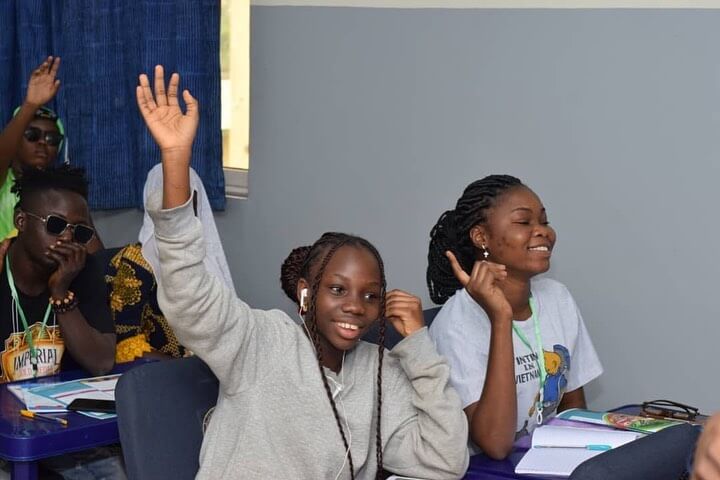ISARA, OGUN: When Olumuyiwa Talabi was first diagnosed with type 2 or “adult diabetes” in his early 40s, he did not give it the required attention.
“I just took diabetes as one of those diseases that will get cured after taking prescribed medications,” he confessed.
He only realised he had caught a terrible life-long disease when his condition worsened.
“Everywhere I went, I got an unmistakable response of ‘no cure?’ he said.
Diabetes remains a critical global health concern. It happens when a digestive organ called the pancreas fails to produce enough hormone called insulin.
Insulin is responsible for transporting glucose (energy) to body cells and tissues. Insufficient insulin could result in increased blood sugar that could, in turn, lead to kidney disease, nerve damage, vision and hearing loss, stroke, heart attack and more.
People with diabetes must watch and keep their blood sugar low, avoid smoking, exercise and take their medications regularly. A failure to manage the condition effectively results in thousands of deaths yearly.
422 million. That is the number of people living with diabetes globally, the World Health Organisation or WHO says. But the numbers are increasing more in low and middle-income countries like Nigeria.
About 1.6 million Nigerians are clinically confirmed to be living with the condition, which killed over 40,000 citizens in 2015 amid a 1.9% prevalent rate, according to the WHO.
Teaching kids to live
After Talabi realised diabetes’ seriousness, several of his family members were diagnosed with it, including one who died due to improper management.
This family experience inspired the retired accountant to establish the Talabi Diabetes Centre or TDC in 2005, a grassroots-based nonprofit that spreads awareness about the disease and helps children living with it manage their conditions better by delivering educational and medical programs to them at a subsidised cost.
It organises what it calls “youth camp for diabetes” yearly in Nigeria’s southwest state of Ogun. Through the help of volunteers, it brings kids sick with diabetes from several Nigerian states to attend the two-day camping where they learn about healthy dieting, the importance of physical exercises to lower sugar levels, and how to inject themselves with insulin safely.
Self-injection: Is it safe?
A 2010 study published in the National Library of Medicine says it is safe for people to self-inject insulin provided they have the skills to use the necessary tools like syringes, pen injectors, pumps, or jet injectors to inject the required doses per time.
“People with Type-1 diabetes are no longer able to produce this insulin. They have to give themselves this insulin injection every day for the rest of their lives in order to be able to control their blood sugar level,” said a diabetes specialist and TDC’s Ogun State coordinator, Kunle Adeshina.
But incorrect self-injection, like administering too little, too much, or at the wrong times, could result in low or high blood sugar, blood sugar fluctuations or other diabetes complications, said a different study also published in the National Library of Medicine.
TDC’s camp facilitators include assisting doctors, nurses, and people who have had diabetes for a long time but have successfully managed it.
During its August 2022 camp meeting, 14-year-old Hassan Yusuf was among 25 attendees. Thanks to Helen Vambe, a dietician and TDC volunteer who arranged for Yusuf to attend the camp in Ogun.
“I’m happy here, seeing others. I have learnt how to use insulin and (to) also avoid some foods because of my health status,” Yusuf said in Hausa, the language spoken in northern Nigeria.
Because paying out of pocket for insulin in Nigeria, where 133 million people are multidimensionally poor base on the National Bureau of Statistics data, is expensive, TDC connects patients with the ‘LifeForAChild’, a global organisation helping kids with diabetes, to access free insulin.
“Most people with Type-1 diabetes have to pay for themselves if they need insulin. But thankfully, we have a programme in Nigeria called LifeForAChild,” Adesina said.
Why kids?
On why the organisation targets children, Vambe said: “Managing diabetes is very difficult and challenging, [and] children with type-1 diabetes are mostly neglected. Nobody takes care of them, which gave birth to the initiative to bring them together.”
Talabi said the team has hosted 60 kids in camps in Ogun and Lagos since 2015. Adeshina, the Ogun State coordinator, said attendees had come from Jigawa, Kaduna, Lagos, Ogun, and Oyo.
Lagos-based 18-year-old Layemo Oluwapelumi attended TDC’s camp in 2021 and repeated in 2022 to gain more knowledge from the doctors to manage her condition.
“I have not learnt about what was taught here before. This [2022] is my second year at the camp organised. Last year [2021], we were not much like this. But this current one, we are much [25]. We saw our doctors and interacted with them”, she said.
TDC also partners with the Ogun State Local Government Service Commission for grassroots mobilisation; and with the state’s general hospitals, the Olabisi Onabanjo University Teaching Hospital, and the Federal Medical Centre in Abeokuta to provide secondary and tertiary care to patients who need it while maintaining its own clinic in Isara town, Ogun, that gives primary care to patients Monday to Friday, between 8 a.m and 3 p.m.
However, while TDC desires to organise camps in states other than Ogun, it cannot do so for financial constraints, plus it would need a sizable number of mobilising volunteers (which it does not have) in those states to hold the programmes there successfully.
The founder said the centre struggles to pay its six clinical staff and four support workers monthly, as inflows from public donations could be slow.
This story was produced with the support of Nigeria Health Watch through the Solutions Journalism Network, a nonprofit organisation dedicated to rigorous and compelling reporting about responses to social problems.





